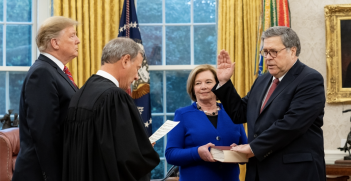Is Australia a middle power?
The term ‘middle power’ has recently been in heavy use. But what exactly is meant by the term, and is Australia really a ‘middle power.’
During the previous Australian government of Kevin Rudd, the term ‘middle power’ came back into fashion. This reflected not only Rudd’s desire to invoke the success of the Bob Hawke and Paul Keating years, but also a worldwide trend of mid-sized nations asserting their status at a time of rising giants. Yet what exactly is a middle power?
While the term middle power has a lineage of at least five hundred years, its glory days were two brief patches of time at the start and end of the Cold War. During those periods of uncertainty —much like our own time— there seemed greater scope for the middle-sized states to have influence, shape the discourse and perhaps lead the world away from the perpetual cycles of great power conflict.
Being a middle power is clearly a coveted label, not just for the western states like Canada and Australia who claimed it in the 20th century, but also emerging powers such as South Korea, Indonesia, Turkey and Mexico who claim it in the 21st. Yet identifying what holds these states together, beyond their exclusion from the minority of great powers and the mass of minnows has proven a challenge for scholars.
A definition…of sorts
There have been three popular ways for trying to bring some accuracy and insight to the label ‘middle powers’. First were attempts to quantify the term: full of lists showing the economic, military and population scope of these states. But the mass of data refused to show clear patterns, much less give us observable insight into behaviour.
Then came the behaviouralists, who sought to define middle powers by a standard of action in world affairs: multilaterally-oriented coalition builders, who sought negotiation and tended not to cause trouble. Yet this risked becoming a tautology and somewhere along the way the words ‘middle’ and ‘power’ no longer seemed to be relevant.
Finally the constructivists had their turn, noting that states claim the middle power label as a way of playing a role in global affairs. For instance, Kevin Rudd used the label to try and claim a seat for his country at the big boys table. Sometimes he succeeded (such as the G20), sometimes he failed (the Asia-Pacific Community proposal and at the 2009 Copenhagen Summit). But if being a middle power just requires saying you are one, critics rightly wondered if the term was worth anything.
A new benchmark
In my article for the Australian Journal of International Affairs I wanted to highlight a different approach that I’d found in the archives and seen hinted at in the strategic studies literature. One that might help International Relations scholars get at just why policymakers keep invoking this term.
The proposed ‘systemic impact’ definition keeps a focus on power, though understands it not as a list of capabilities but via the how and where of state action in regional and global affairs. Taking a cue from Thucydides famous dictum — ‘the strong do as they can and the weak suffer what they must’ — the systemic impact approach suggests a middle level: states able to provide for their own defence but without great capacity for coercing others. These states should also be able to shape parts of the international system, not the overlying structure, but at least refining specific parts it in ways that suit their interests.
This definition helps in two ways. First, it better clarifies what we should expect from middle powers and how they might —with a stress on might as poor leadership can cast these nations back to irrelevancy — shape and change regional and even international affairs. Second, it gives us a benchmark — admittedly imprecise but an improvement on what we had — for judging which states are middle powers.
So was Kevin Rudd right to claim Australia as a middle power? I argue so. Australia is a tough continent to defend, but the country probably could do so. Certainly any great power would think twice about the wisdom of an attack (as Japan did in 1942). There are also enough examples of Australia helping push the international system, on economic, security and environmental issues, to justify the label.
Defining middle powers might seem like a grade-school quiz or late night discussions over red wine. But given the term’s heavy use by policymakers and the uncertainty of our times, scholars need to pin down just what we can know and expect from these mid-sized states. The security and prosperity of Asia may very well depend on what the region’s middle powers decide to do.
Dr Andrew Carr is a research fellow at the Strategic & Defence Studies Centre, Australian National University
This is an edited version of an article published in the Australian Journal of International Affairs, Vol 68 (1) 2014.





